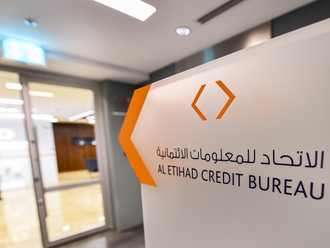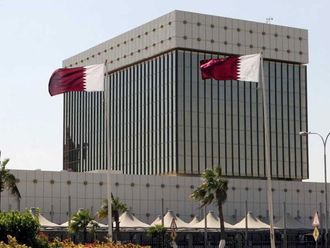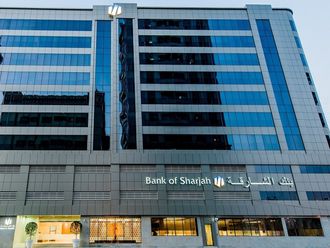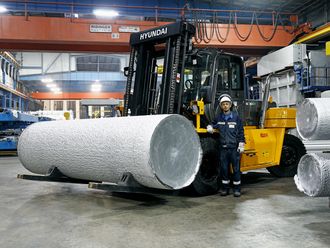The word “innovation” is extremely malleable: it means different things to different people and within the banking fraternity it’s no different. Generally speaking, though, it is a loosely used, or dare I say, a much “abused”, word, at least in terms of marketing, with claims to be innovative and unique in their offerings of products and services.
Over time “innovation” has been used as a marketing “gimmick” rather than to describe creativity and true innovation of products and services that have genuinely pushed the boundaries and surprised customers.
When we talk about innovation, we all know that it does not necessarily mean “reinventing the wheel”. Innovation can be in the form of small, incremental changes that add to the solutions basket. To me, therefore, the word “innovation” stands for continuously pushing the boundaries in different areas, in order to progress and advance your business. That’s made possible by studying the market, finding the gaps, taking measured risks and making judicious investments.
In the context of the banking, it essentially means providing products that serve the customers’ needs at a value and level of satisfaction that makes the bank standout from its competitors. Banking is a service industry, so creativity can make a big difference.
Despite Islamic banking being a fast growing sector, the pace of innovation has been slow. Unless we differentiate ourselves in terms of value — a competitive price; innovative products; and high quality customer service — we will struggle to compete with conventional banks. The good news is Islamic banks are starting to do that more and more, and successfully.
Over the last few decades, successful products such as Mudaraba, Istisna, Murabaha, Sukuk and Tawreeq, another name for securitisation, and several others have been developed. In some markets, Islamic banks have used tools such as profit rate swap, profit rate and foreign exchange hedging, though there have been disagreements among scholars over how Sharia compliant these products are. The positive that we can take away, despite disagreements among scholars, is that there are an increasing number of people thinking about challenging the status quo and pushing the boundaries of what is Sharia compliant and what is not.
Differing interpretations
However, despite the successes Islamic finance innovation faces challenges from within.
The most oft-repeated one is lack of globally accepted regulation. The lack of a unified interpretation on what constitutes Sharia compliant — differing interpretations in different countries and sometimes among different banks within the same country — creates uncertainty and negatively impacts cost, thereby hindering innovation. It also prohibits cross-border business, making Islamic products less liquid and less accessible to a wider base.
Going forward standardisation is critical to creating the transparency and clarity that would remove doubts from the minds of highly sceptical Muslims and non-Muslims alike, about the integrity if Islamic finance products and services. This is turn will drive the innovation necessary for the growth of Islamic banking to be sustainable.
Closely connected to the innovation aspect is sustainability of the growth of Islamic banking. Spurring innovation and overcoming sustainability challenges in the Islamic banking space are closely dependent on the overall focus of a country and a region’s Islamic economy and finance. In this regard, Dubai’s ambition to be the capital of the Islamic economy is a positive for Islamic banks and will help drive innovation in financial products and services.
As an example from the banking sector, I would like to cite Noor Bank’s innovative online Commodity Murabaha Transaction structure. In early 2014 our tie-up with the DMCC or the Dubai Multi Commodities Centre to utilise their Tradeflow platform for online commodity Murabaha settlements was a first for a UAE Islamic Bank. It enables enhanced capability, shortens delivery turnaround time and improves process efficiencies for corporate and SME financing transactions. The structure also allows for greater Sharia compliance as the goods are in existence in the UAE, and are accessible for inspection and full possession.
Central to building banks’ scale and depth, that would allow a competitive price for both retail and corporate business, is the way technology is harnessed to reach out to a wider customer base. Due to the traditional emphasis on sales and growth, revolving around Shari’a compliant principles, technology in Islamic banks has been mostly focused on process, rather than delivering customer service benefits.
Appropriate investments
Noor Bank is one of few Islamic players in the market that has successfully developed and implemented the Sharia compliant factoring solution for corporate and SME clients through appropriate investments in platform, people and processes.
In a traditional Islamic Receivables Finance facility, the customer is required to execute Murabaha schedules with every request for finance. The Murabaha schedule, under this solution, is signed only once during the year and subsequent transactions are as simple as submission of invoices with supporting transport documents to obtain finance. The buyers also have the flexibility to make early or a slightly delayed payment around the due date. The factoring system has the capability to adjust the tenor automatically.
Going forward, as globalisation of Islamic banking gathers pace, it is necessary for Islamic banks across the world to join together and collaborate under a unified body. Collaboration brings together the best of minds and fosters ingenuity and combined efforts, spurring the best kinds of innovation. As a member of the Islamic banking industry, we can achieve that sooner than later — innovating products that adhere to Sharia principles, and meeting the demands of the customer and markets. With the right thinking and a willingness to invest in innovation, we can do it.
Hussain Al Qemzi, CEO of Noor Bank. This column is excerpted from his keynote speech at Hamdan Bin Mohamed Smart University Innovation Arabia 8 Conference in February.












